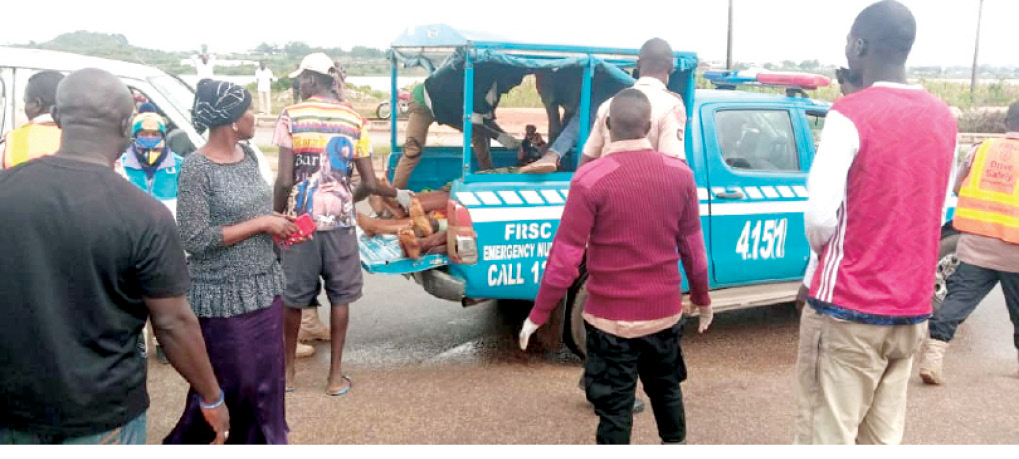The Federal Road Safety Corps on Monday said from January to December this year, it recorded 9,483 crashes with 4,427 deaths.
Acting FRSC Corps Marshall, Dauda Biu, disclosed this to newsmen in Abuja.
He this was an eight percent reduction in the last year’s incident which recorded 10,304 crashes and 4,800 deaths.
He said part of the overall strategies of the Corps was the deployment of patrol teams on major corridors and traffic gridlock prone areas to ensure its personnel were seen within every 10 kilometers drive on all sides of the roads.
Abuja train accident: Level crossing used by victim illegal — NRC
Abuja, Lagos, Benue record high rate of health violations – Report
He listed the areas as including the Lagos-Ibadan Expressway, the Abuja-Kaduna-Zaria-Kano Road, the Nyanya-Maraba-Keffi-Akwanga Road and the Lugbe-Giri-Gwagwalada-Abaji-Lokoja Road.
He said the fundamental objectives of the special patrol operation which commenced on December 15 and would terminate on January 15, 2023 included easing movement on the highways, enforcing traffic laws as well as reducing crashes, fatalities and injuries.
He said the Corps had deployed 743 patrol vehicles, 184 administrative vehicles, 132 ambulances, 23 tow trucks and 144 motorbikes as part of the patrol logistics.
He added that the Corps would be strict with mass transit drivers who drive in the night and violate traffic rules.
Executive Secretary, Nigerian Association of Road Transport Owners (NARTO), Ogbogo Aloga, described the casualty figure released by the FRSC as outrageous and blamed the rate of road accidents on the bad state of roads.
In a chat with Daily Trust, Aloga urged the federal government to focus on road transportation by “creating special intervention funds for players in the sector to support fleet renewal and maintenance of vehicles.”
He said it was unheard of that there are Banks of Industry, Agriculture and all forms of intervention for other sectors of the economy, there is nothing in place for the transportation sector.
“In the road transport sub-sector, there is no unified regulatory body. Road transportation is an all-comers’ affair and it shouldn’t be that. There has to be some form of regulations.
“There should be a form of intervention in the road transport sector to address issues of re-fleeting. Government should concession out these roads. When you concession, people would pay and then they use it in maintaining the roads,” he said.
An automobile and transport expert, Dr Oscar Odibo in a chat with our correspondent, said road users and motorists must also change their attitudes on the roads, adding that when all stakeholders play their part, there would be “a high differential in terms of heavy reduction in road traffic crashes.”
By Maureen Onochie (Abuja) & Abdullateef Aliyu (Lagos)

 Join Daily Trust WhatsApp Community For Quick Access To News and Happenings Around You.
Join Daily Trust WhatsApp Community For Quick Access To News and Happenings Around You.


